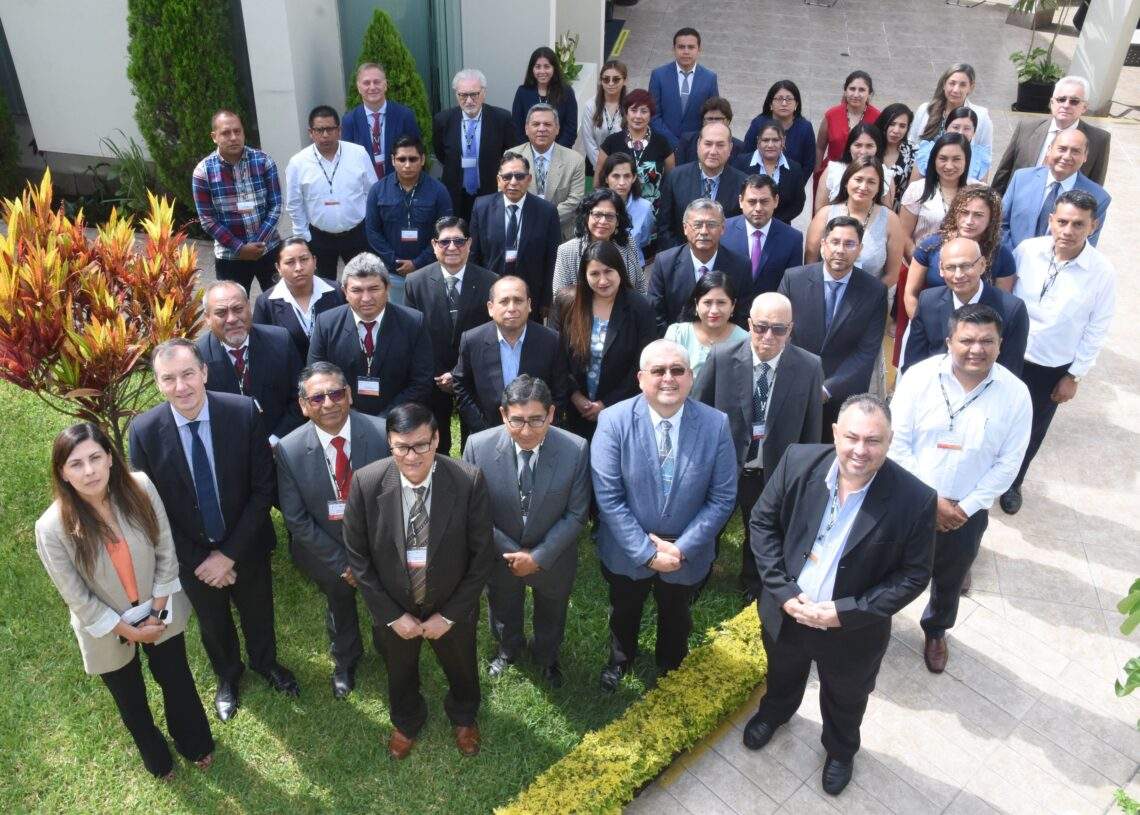COPOLAD III continues its support to Peru in its advances in the investigation of crimes related to drug money laundering. As part of this support, from 20 to 24 January, was organised a Course on economic, financial, tax and accounting analysis for the preparation of expert evidence in money laundering processes related to illicit drug trafficking and previous crimes. It took place at the Training Centre of the Superintendency of Banking, Insurance and Pension Fund Administrators (SBS).
The SBS collaborated in the initiative through the Financial Intelligence Unit (UIF), together with the European Union Delegation in Peru and the National Commission for Development and Life without Drugs (Devida).
Cryptoassets in financial crimes
The course focused on the use of cryptoassets in the context of financial crimes, forensic audits applied to judicial investigations, international best practices in financial research, and the use of OSINT (Open Source Intelligence) in these processes.
During four days, participated experts from the Ministry of Justice and Human Rights (Minjusdh), the Public Prosecutor’s Office, the Anti-Drug Directorate (Dirandro) of the Police, the Judiciary and the Money Laundering Directorate (Dirila), among other professionals.
Integrated solutions against drug trafficking
In its work against drug trafficking, the European Union’s COPOLAD III programme supports public policies that offer integral solutions through a combination of public security initiatives, police investigation and fight against illicit capital and its laundering.
For this purpose, in addition to the individual countries, it also collaborates at the regional level with the Network of Anti-Drug Prosecutors of Ibero-America (RFAI), the Financial Action Task Force of Latin America (GAFILAT) and the Caribbean (GAFIC), as well as the Caribbean Community Implementation Agency for Crime and Security (CARICOM IMPACS). It also accompanies some Latin American and Caribbean countries in training and technical assistance for the improvement of economic investigation and social use of assets confiscated from organised crime, such as in Colombia, Costa Rica and Uruguay.
Joint effort to weaken their business model
In the inauguration of the Course on economic, financial, tax and accounting analysis for the preparation of expert evidence in money laundering processes related to illicit drug trafficking and previous crimes, on 20 January, took part María Fernanda García-Yrigoyen, Deputy Superintendent of the FIU; Jerome Poussielgue, Minister Counsellor and Head of Cooperation of the European Union in Peru; and Martín Villafuerte Kanemoto, General Manager of Devida.
María Fernanda García-Yrigoyen highlighted the importance of the course, ‘which will update and strengthen the skills of professionals involved in the investigation of crimes related to money laundering, drug trafficking and other predicate offences through advanced economic, financial and tax analysis tools’.
For his part, Martin Villafuerte expressed Devida’s commitment to confront drug trafficking business model, which destroys society and environment: ‘This joint effort weakens the narcotrafficking organisations that affect our economy and biodiversity’.
Finally, Jerome Poussielgue highlighted the EU’s commitment with Peru in the fight against organised crime in order to jointly face the challenges and dismantle its ‘business model’ and, specifically, its financial interests: ‘Strengthening and structuring peer-to-peer connections is fundamental to identify and adopt adequate measures in the fight against crime and its bases’.






